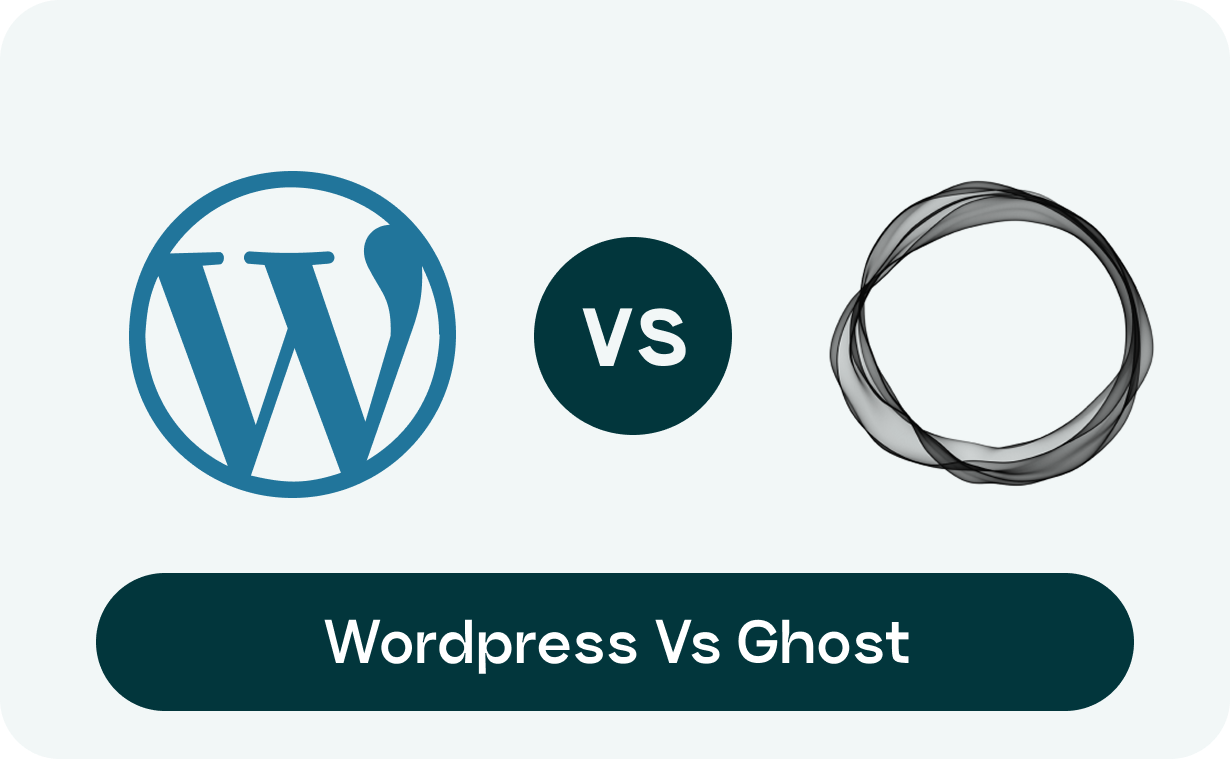WordPress vs Ghost: A Detailed Comparison Guide for 2025
WordPress vs Ghost: A Detailed Comparison Guide for 2025
Choosing the right blogging platform can significantly impact your website's performance, visibility, and long-term success. Two popular contenders in the blogging world are WordPress and Ghost. Both offer unique strengths, but they cater to different user needs and skill levels.
In this comprehensive guide, we compare WordPress and Ghost in terms of features, usability, SEO, performance, customization, and more to help you decide the best fit for your content strategy in 2025.
Overview of WordPress
WordPress is the world’s most popular content management system (CMS), powering over 43% of all websites. Known for its flexibility, it supports everything from personal blogs to full-scale eCommerce websites.
Key Features:
- User-friendly admin interface
- Thousands of themes and plugins
- Supports blog, eCommerce, and forums
- Large community support
- Highly customizable
- SEO plugin integrations
Overview of Ghost
Ghost is an open-source blogging platform built specifically for publishers and writers. It focuses on speed, simplicity, and a clean writing experience.
Key Features:
- Clean, minimalist editor
- Built-in SEO and email newsletters
- Markdown support
- Fast performance
- Headless CMS capabilities
- Focused on publishing
WordPress vs Ghost: Feature Comparison Table
| Feature |
WordPress |
Ghost |
| Target Users |
All types (bloggers, businesses) |
Writers, publishers, content teams |
| Ease of Use |
Beginner-friendly |
Developer-friendly, minimal UI |
| Customization |
Extensive via themes and plugins |
Limited to themes and integrations |
| SEO Tools |
Excellent with plugins |
Built-in SEO features |
| eCommerce |
Full support via WooCommerce |
Not built for eCommerce |
| Speed and Performance |
Varies by setup |
Extremely fast by design |
| Hosting Options |
Self-hosted or managed |
Mostly Ghost(Pro) or self-hosted |
| Community Support |
Huge, global support |
Smaller, focused community |
| Editor |
Block editor or classic editor |
Markdown-based clean editor |
| Newsletter Capability |
Requires plugins (Mailchimp, etc.) |
Built-in email newsletter system |
Target Audience Comparison
WordPress is ideal for:
- Bloggers and content creators
- Businesses and startups
- eCommerce stores
- Agencies and freelancers
- Non-technical users
Ghost is ideal for:
- Writers and journalists
- Content-focused publishers
- Technical users comfortable with Markdown and CLI
- Teams looking for speed and performance
Ease of Use
WordPress:
WordPress offers a comprehensive dashboard, WYSIWYG editor, and drag-and-drop builders like Elementor. Even non-coders can create powerful websites with ease.
Ghost:
Ghost has a sleek interface but caters more to technical users. Its Markdown editor is fast and distraction-free but lacks the beginner-friendly UI of WordPress.
Winner: WordPress (for all user levels)
WordPress:
Performance depends on plugins, theme, and hosting. Can become sluggish if not optimized.
Ghost:
Built with Node.js, Ghost is lightweight and optimized for speed. It outperforms WordPress in clean installations.
Winner: Ghost
Customization and Flexibility
WordPress:
Highly customizable through plugins, themes, and custom code. You can build any type of website.
Ghost:
Customization is limited and usually handled through themes and integrations. It is not designed for large-scale web applications.
Winner: WordPress
SEO Features
WordPress:
SEO is a strong point, especially with plugins like Yoast SEO and Rank Math offering complete control over metadata, sitemaps, breadcrumbs, and more.
Ghost:
Includes built-in SEO features such as meta titles, descriptions, AMP support, and clean URLs without needing plugins.
Winner: Tie (Ghost for simplicity, WordPress for advanced control)
Security
WordPress:
Frequent updates and security plugins help keep it secure, though its popularity makes it a frequent target.
Ghost:
Less targeted due to lower market share, and fewer plugins mean fewer vulnerabilities. It also has built-in security features.
Winner: Ghost (by default)
Scalability
WordPress:
Highly scalable with the right hosting and architecture. Used by large enterprises and media companies.
Ghost:
Scalable for content-heavy sites but not ideal for feature-heavy web applications.
Winner: WordPress
Cost Comparison
WordPress:
Free core, but costs can rise with premium themes, plugins, and managed hosting.
Ghost:
Ghost(Pro) pricing starts at $9/month for individuals. Self-hosting may require more technical setup but is cost-effective.
Winner: Depends on the use case
Community and Support
WordPress:
Large global community with extensive forums, tutorials, blogs, and third-party developers.
Ghost:
Smaller community but well-documented and focused. Premium users get direct support.
Winner: WordPress
| Criteria |
Best Choice |
| For Non-Developers |
WordPress |
| For Writers and Bloggers |
Ghost |
| For Business Websites |
WordPress |
| For Performance |
Ghost |
| For Full Website Features |
WordPress |
| For Minimalist Blogs |
Ghost |
Final Verdict:
If you’re looking for an all-in-one website builder with unlimited customization and community support, WordPress is the top choice in 2025. However, if your focus is strictly on publishing, writing, and speed, Ghost offers a clean and optimized environment for content creators.
FAQs: WordPress vs Ghost
1. Is Ghost easier to use than WordPress?
Ghost has a cleaner interface but is more technical. WordPress is easier for beginners due to its graphical interface and plugin support.
2. Which is better for SEO: WordPress or Ghost?
Both offer great SEO capabilities. WordPress offers more control through plugins, while Ghost has built-in features.
3. Can I use Ghost for eCommerce?
Ghost is not built for eCommerce. WordPress supports eCommerce through WooCommerce and other plugins.
4. Is Ghost faster than WordPress?
Yes, Ghost is faster by default due to its lightweight Node.js architecture and minimal overhead.
5. Which platform is more secure?
Ghost has fewer vulnerabilities out of the box. WordPress is secure with regular updates and plugins, but also more exposed due to its popularity.











